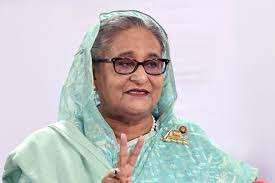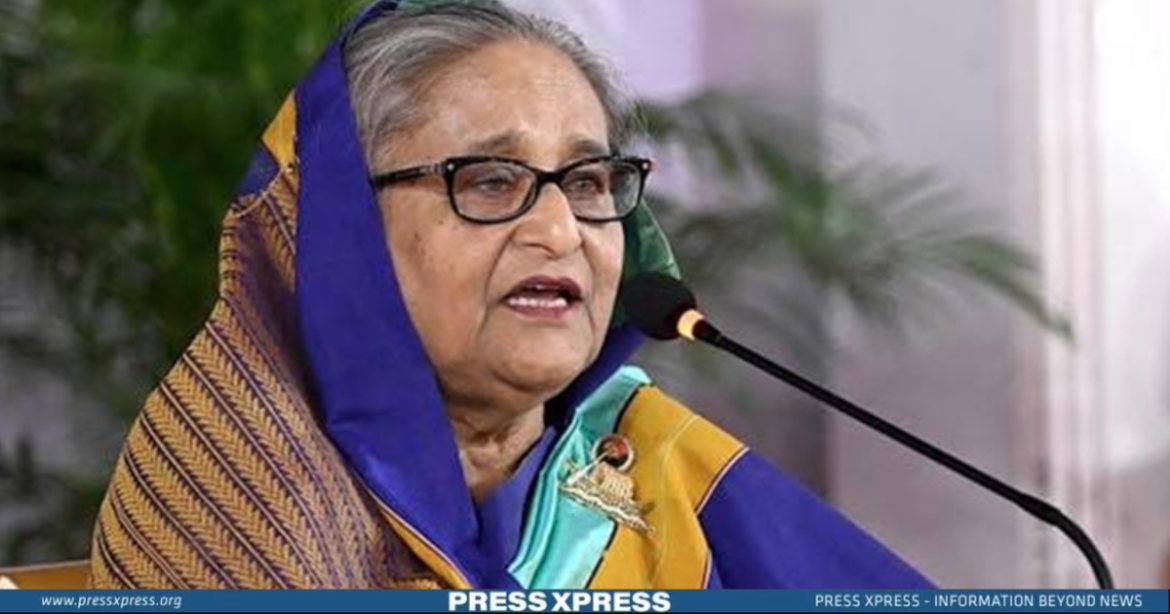The 12th National Election of January 7, 2024, marked a significant milestone in Bangladesh’s democratic journey, hailed for its transparency and credibility
“The 12th National election held on January 7, 2024, was the most transparent and credible since 1975” – Prime Minister Sheikh Hasina asserted during a meeting with Tungipara Awami League leaders and activists on February 7, 2024, at Ganabhaban. She also highlighted the attempts by the BNP-Jamaat alliance to disrupt the elections but praised the people’s active participation.
“I think the election that was held in Bangladesh on January 7 this year was the freest, fairest, and most neutral since 1975.”
– Prime Minister Sheikh Hasina

However, she emphasized the nation’s progress, citing improvements in financial security, food availability, and healthcare access. The government’s initiatives, including free medicines through community clinics, have contributed to these advancements.
You can also read: Why Biden’s Letter A Lightning Strike to Sanctions Gamblers?
Despite global food price hikes due to events like the Ukraine-Russia war, Sheikh Hasina addressed the government’s efforts to manage commodity prices and ensure food security. She encouraged cultivating uncultivated lands to boost food production and proposed storing surplus grains in every district. Additionally, she urged the conservation of electricity and water resources.
Overall, Sheikh Hasina outlined the government’s efforts to address economic challenges and ensure the welfare of the Bangladeshi people while calling for collective action and resource management.
Tranquil 12th National Assembly Elections
Amid myriad challenges, the polling process for the 12th National Assembly elections concluded peacefully on January 7, 2024, spanning the entirety of the nation. Across 42103 centers within 299 constituencies, polling took place from 8 am to 4 pm.
Bangladesh experienced a landmark and tranquil election, with millions of voters exercising their rights to elect the 12th parliament. Chief Election Commissioner Kazi Habibul Awal reported a turnout of nearly 41.8 percent among eligible voters, signifying a pivotal moment for the nation’s democracy and stability.
The electoral event transpired in a serene and democratic ambiance, marked by minimal irregularities and isolated incidents of violence. A deployment of approximately 800,000 security personnel ensured the safeguarding of polling stations, with troops mobilized nationwide to uphold peace. Voters exhibited confidence and enthusiasm in the electoral process, queuing up to participate in shaping the nation’s future.
12th National Elections At A Glance
- 12th National Assembly elections – January 7, 2024
- Polling centers – 42103
- Constituencies – 299
- Voter turnout – 41.8 percent of eligible voters
- Security personnel – 800,000
- Foreign observers – 127
- Media representatives – 59
Foreign observers lauded the proceedings, with 127 international observers and 59 media representatives attesting to the fairness, freedom, and impartiality of the election. Jim Bates, a former US Congressman and current election observer, hailed the election as “free and fair,” emphasizing the active participation and fervor displayed by the Bangladeshi electorate.
Similarly, the Chief Electoral Officer of Palestine, Hisham Kuhali, commended Bangladesh’s electoral procedures and expressed contentment with the seamless completion of the voting process. Describing the election as quiet and peaceful, Kuhali noted the simplicity and efficiency of the voting procedures, aligning with international standards.
Observers from the Organization of Islamic Cooperation (OIC), Russia, Gambia, and other nations echoed sentiments of satisfaction with the election. Conversations with voters and candidate agents affirmed their contentment. Observers from the US and Australia also affirmed the election’s free and fair nature.
BNP’s Peaceful Protests Turned Violent to Disrupt Election
Before October 28, 2023, BNP’s protests against the government were relatively peaceful, but they took a violent turn thereafter. Despite initiating countrywide blockades and strikes to cripple the economy and pressure the government to resign, BNP’s strategy backfired, resulting in significant violence.
BNP imposed a 31-day hartal blockade from October 29 to January 6, during which over 328 arson attacks and 198 acts of vandalism were reported nationwide. Sadly, in a desperate act, BNP members allegedly carried out deadly attacks on trains, resulting in the deaths of 9 individuals and injuring many others.
BNP’s Violent Activities
- BNP imposed a 31-day hartal blockade – from October 29 to January 6, 2024
- Arson attacks – over 328 arson attacks
- Acts of vandalism – 198
- Bomb attacks targeted – 29 polling stations
- Crude bomb attacks – More than 97
- Election campaign offices were attacked – 4
In the lead-up to the January 7 election, the party resorted to cocktail attacks on polling stations and both government and private properties. More than 97 crude bomb attacks targeted 29 polling stations, and 4 election campaign offices were attacked. However, these efforts failed to gain momentum as public support waned.
BNP leaders were arrested in connection with the violence, leaving activists uncertain and isolated in their political endeavors, facing rejection from the populace. Despite BNP’s efforts, the election proceeded as scheduled, with the majority voting for Prime Minister Sheikh Hasina for another term. BNP found itself pushed further back in the political arena, overwhelmed by despair.
Remarkable Improvements Under Sheikh Hasina’s Government
Bangladesh’s major remarkable improvements under Sheikh Hasina’s government are discussed below;
Financial Security Boost:
Microfinance initiatives expanded, providing small loans to over 10 million Bangladeshis, empowering entrepreneurship and alleviating poverty. Strengthened economic policies led to consistent GDP growth, averaging over 7% annually, fostering stability and creating job opportunities. Foreign investment surged, bolstering industries and infrastructure, and enhancing the country’s economic resilience.
Enhanced Food Availability:
Agricultural modernization programs increased crop yields, ensuring food security for millions. The introduction of innovative farming techniques and high-yield crop varieties improved productivity, reducing reliance on food imports. Food distribution networks expanded, reaching remote areas, and mitigating hunger and malnutrition significantly.
Improved Healthcare Access:
Investment in healthcare infrastructure resulted in the establishment of new hospitals and clinics, enhancing medical services across the country. The introduction of community health programs facilitated access to basic healthcare services, particularly in rural areas. Now over 30 types of medicines are given free of charge through community clinics. Expanded immunization coverage and awareness campaigns led to a decline in infant mortality rates, improving overall public health.
Education Advancements
Under the leadership of Prime Minister Sheikh Hasina, Bangladesh has made remarkable strides in education. Initiatives like the Digital Bangladesh program and the distribution of free textbooks have significantly boosted access to education. Investments in infrastructure and teacher training have improved the quality of learning. Moreover, innovations like e-learning platforms have enhanced education accessibility, empowering students nationwide. Sheikh Hasina’s government’s commitment to education continues to uplift Bangladesh towards a brighter future.
In conclusion, the 12th National Election of January 7, 2024, marked a significant milestone in Bangladesh’s democratic journey, hailed for its transparency and credibility. Despite challenges from the BNP-Jamaat alliance, Prime Minister Sheikh Hasina’s leadership, backed by the people’s active participation, steered the nation towards progress and stability. Through initiatives addressing economic challenges, healthcare, and education, Sheikh Hasina’s government has ushered in remarkable improvements, ensuring the welfare and prosperity of the Bangladeshi people. There are also a lot of advancements under Sheikh Hasina.


